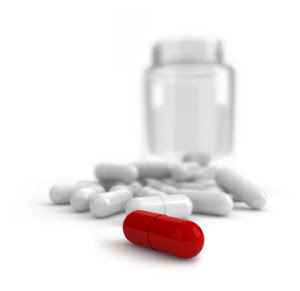
Afraid of swine flu? Well then, wear this suit.
If the new swine flu vaccine doesn't give you the right dose of inner peace, there's another layer of protection at your disposal. It comes from Japan, which means it looks good, too.
The new anti-H1N1 suit doesn't just make you look good, but it supposedly also helps keep you disease-free.
According to the U.K. Telegraph, Japanese menswear company Haruyama Trading has developed a suit that it claims can protect wearers from the H1N1 virus.
The suit is coated with titanium dioxide--a chemical commonly used in toothpaste and cosmetics--that breaks down when reacting with light and supposedly kills the virus upon contact. (If you read Japanese, here is the company's press release.)
Despite the new layer of protection, the suit seems pretty much like other suits commonly worn by Japanese white-collar workers. Each suit costs about $580, about how much a decent suit at Men's Wearhouse costs. The suits go on sale Thursday and in four colors and styles, including medium gray, charcoal, navy, and a gray pinstripe. The company says the suit will retain its protective capability even after being washed multiple times.
Japan, like many other places in Asia, has been gripped by the swine flu since its outbreak a year ago. According to the World Health Organization, more than 340,000 people have been infected with H1N1 worldwide; the disease is responsible for 4,100 deaths.
Generally, most of the new cases were reported to take place in urban areas, where population density increases the risk of transmission. It's unclear if there will be a female version of the suit; it's also unknown when or if the suit will be on sale in the U.S.
_____________________________________________
_____________________________________________
How Business Travelers Can Avoid Swine Flu
Experts say businesses and their employees must take precautions against the seasonal flu and the H1N1 virus on the road.
With flu season just around the corner, workers and employers need to make plenty of preparations in order to stay safe on planes, trains, and buses. Fears that a second wave of the H1N1 virus, or swine flu, will hit during the upcoming flu season are already prompting airlines to be cautious.
Some airlines including Southwest are saying they will keep passengers from flying if they appear to be very ill with a communicable disease, but it can be hard even for medical professionals to attribute a lone sneeze to flu, as opposed to some other condition. Other airlines, such as Virgin America, are gearing up for the resurgence by keeping sanitizing wipes and gels, and surgical masks on board. The airline is also removing pillows and blankets from daytime flights.
Travelers can take some of these precautions themselves, during their morning commute as well as on a business trip. Commuters and passengers should make sure that they are "doing the sensible, common sense things like washing their hands frequently, and covering their coughs and sneezes," advises Lisa Koonin, the Centers for Disease Control's (CDC) lead for pandemic planning for the private sector and businesses. And of course, she adds, "sick people really do not need to travel."
In addition to skipping your flight if you're under the weather, Koonin says business travelers can beef up their immune systems by eating, drinking, and sleeping well before a flight. "The healthier they are going into it, the more resilient they'll be," she says. Also, in highly-trafficked public places, commuters and flyers should avoid touching their eyes, nose and mouth, and use alcohol-based hand sanitizers if they cannot access soap and running water.
Koonin also says that despite the close quarters, being on a plane is no more or less dangerous than punching in at the office. "Flu is going to be everywhere," she says, the only area of increased risk is, ironically, in a health care environment because of the higher concentration of sick people.
What about wearing a mask? "The surgical masks that you see some people wear were created to prevent splashes of fluid into the nose and mouth during surgery," Koonin says. They are not going to prevent virus particles from penetrating the body's defenses, although they could be useful in blocking the sneezes of a person who is already sick but has to leave the house.
A lot of the responsibility also falls to business owners. In addition to following World Health Organization and CDC directives they need to educate their employees about which demographics are the most at risk, gather information from their local health department and nearby businesses, provide vaccines—which are available for seasonal flu now, but won't be out for H1N1 until mid-October—and perhaps most importantly, have a clear leave policy.
"People don't want to jeopardize their job, they don't want to jeopardize their sick leave, they don't want to be unpaid," says Al Berman, executive director of DRII, The Institute for Continuity Management, an organization that certifies businesses in contingency planning. "So you want to make it conducive to them to stay home if they are ill. I'm not sure that the personnel policies of a lot of organizations have done that."
According to CDC officials, here's a list of precautions that business owners should share with employees:
* Always wash your hands especially after touching common surfaces.
* Cough and sneeze into your sleeves and not into hands.
* If your airplane seat comes with a pillow or blanket, ask a member of the crew if they could remove it. Bring your own pillow and blanket.
* Avoid traveling and stay home from work if you are sick.
* Wait until you have been fever-free for 48 hours without the help of medicine before resuming work and commuting. If you must travel, wear a mask.
* Eat well, drink lots of water, and get a good night's rest before flying.
* If you won't have access to soap and water, carry an alcohol-based hand sanitizer.
sourced from www.inc.com






0 comments:
Post a Comment